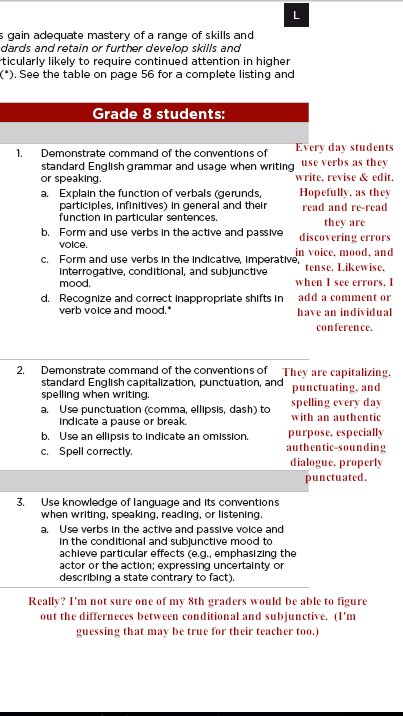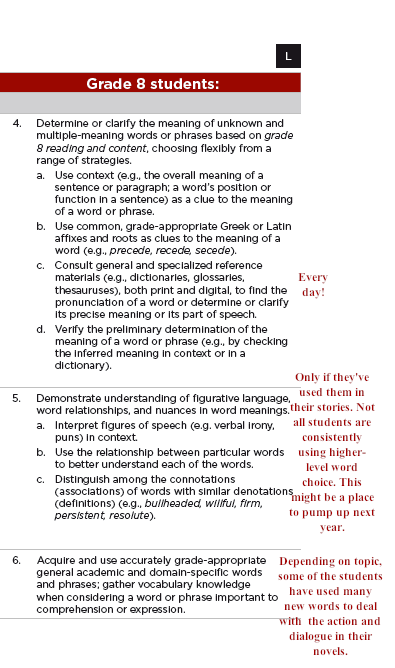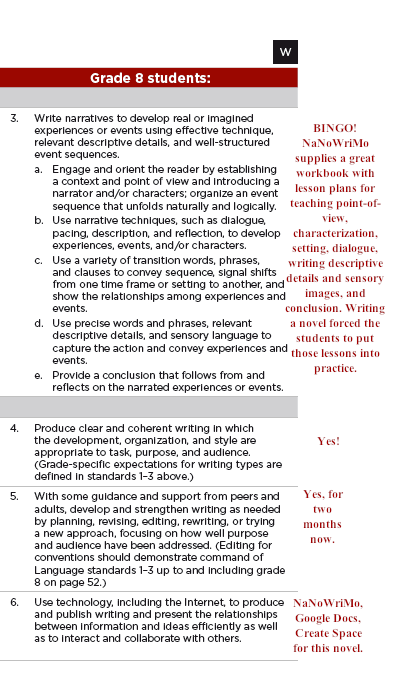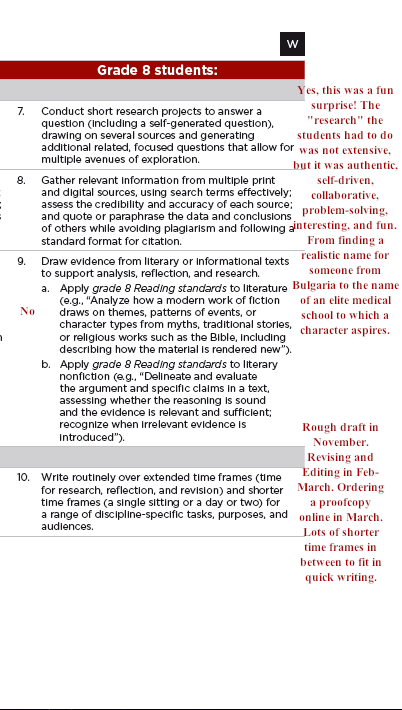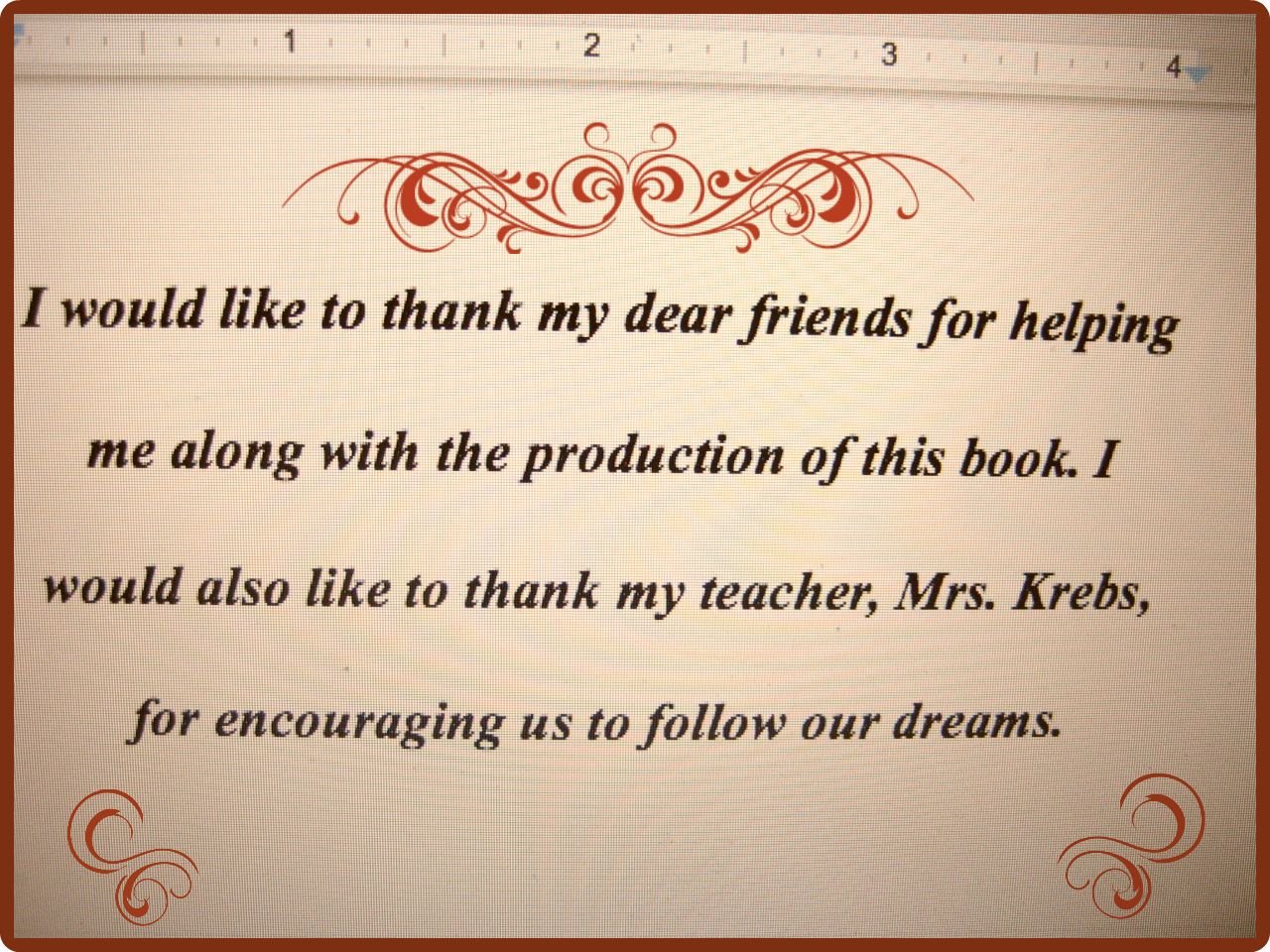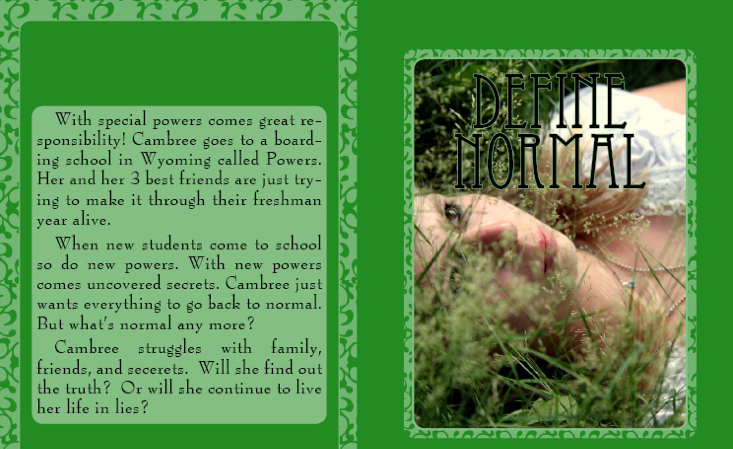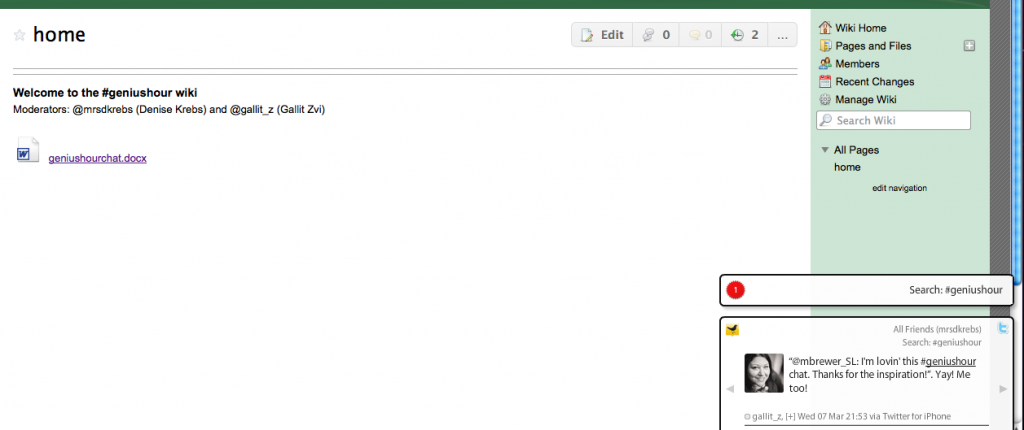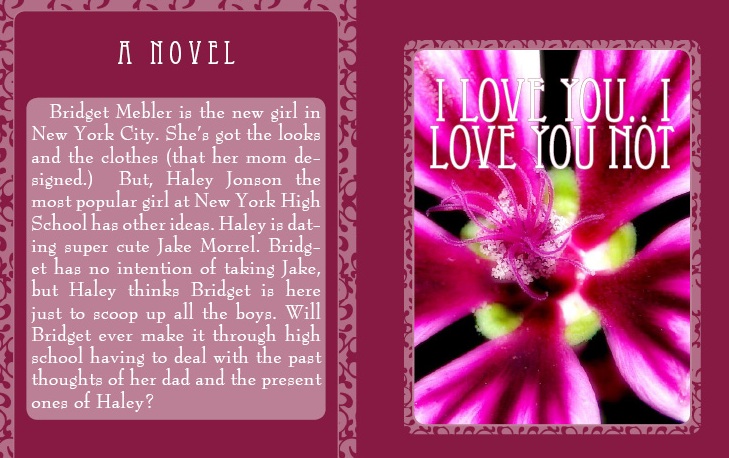
NaNoWriMo’s Young Writer’s Program is a growing part of my eighth grade curriculum. We wrote rough drafts in November. In February, we started on what I thought would be a one-month journey of revision and editing, but it is turning into more like two months. That’s three months in all, and the jury is still out on whether this has been a good use of our time, so I needed to do a little reflection.
Previously with Novel-Writing 8th Graders
Three years ago, NaNoWriMo was a voluntary assignment, with about 2/3 of the class participating. The rest of the class did other writing assignments. A bit more than half of the novelers chose to continue with the work of editing, most of it on their own. Proof copies were ordered in the summer.
Two years ago, 100% wrote first drafts in November (it became an assignment for everyone that year), and 85% edited (much in a short exploratory course and then some on their own). We ordered proof copies by the skin of our teeth, and celebrated our accomplishment the last week of school.
Now, this year, with three months on the line, is the experience worthwhile enough to take English time to get the process done for everyone? 
Noveling and the Common Core
I compared the noveling, revising and editing curriculum to the Common Core standards in Language and Writing, and the students have really grown in the standards I looked at. The following five images are the complete standards for eighth grade in Language and Writing. I made notes in red regarding student work on this project:
Language Common Core
Writing Common Core
More than the Common Core
Clearly, with this project they are doing the work of writing and developing written language skills. In addition to these important skills in the Common Core, the 8th graders are also learning to…
- follow their dreams
- believe in themselves
- recognize their creativity
- know they are a genius, and the world expects their contribution*
- make decisions about what to do in school
- develop passion for their own assignments, not mine (On an aside, one of my greatest sadnesses as a teacher is when a student says, “Is this what you want?” I can honestly say, in three years, no one has ever asked me that question regarding their novel. It is strangely theirs from start to finish, even though I have many benchmarks, requirements, and, come editing time, I comment all over their Google Doc like an overachieving street tagger! I am constantly having conferences and mini-lessons with individuals. [Note to self: Next year bring in backups–parents and retired teachers who can help.] BUT, they do the work and want to. They know they are getting a proof copy and want it to be good. No student has ever said, “That’s OK, I’ll just keep this plotless wonder with all its mistakes.” I back off when I realize I’m asking too much. When one has 339 errors of the same kind, it can be a bit daunting, so I help as much as possible and we’re becoming pros at using the find and replace feature.)
- and so much more
Maybe the jury is closer to a decision than I thought! I’ll let you know after we get all the books ordered!
Additional Resources
For more on my experience with NaNoWriMo, here is an index to additional blog posts about it.
Download Common Core Standards.
* Angela Maiers
